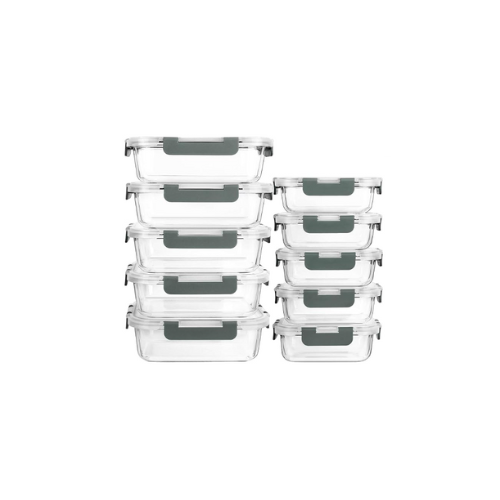Healthy Habits: Busting Myths and Building Success
Hello Brightly Nourished Familia!
Healthy habits are really the key to long-term wellness, especially when you’re dealing with things like diabetes, high blood pressure, high cholesterol, or if just want to feel better overall. Sure, meds can help, but the most lasting changes come from the habits we build every day. But let’s be real, creating those habits isn’t always a walk in the park.
As a health coach, I’ve had the chance to work with a lot of people who were sent my way by their doctors. They’re all aiming for the same thing: better metabolic health. But here’s the thing—everyone’s path to getting there is different. That’s why I set up a personalized, year-long program for each of my clients, and in the beginning, we meet every single week. It’s all about helping them find consistency and figuring out what works best for them personally because what clicks for one person might not for another.
I get it, building new habits can be tough. Staying motivated, being consistent, and not getting discouraged by setbacks are just some of the challenges we all face. But these struggles are totally normal, and with the right approach, you can definitely overcome them. In this blog, I’m going to share some of my experiences, bust a few myths about building habits, and give you some practical tips to help you start creating healthy habits that will lead you to a better, more balanced life. Let’s dive in!
Myths About Building Healthy Habits
Alright, let’s talk about some of the biggest myths out there when it comes to building healthy habits. These are the kind of things that can trip you up if you’re not careful, so let’s bust them wide open.
Myth 1: It Only Takes 21 Days to Build a Habit
You’ve probably heard this one before—"It takes 21 days to build a habit." Sounds pretty nice and tidy, right? But here’s the thing: it’s not really true. This idea came from a plastic surgeon in the 1960s who noticed that his patients took about 21 days to get used to their new look. Somehow, that morphed into the idea that any habit could be formed in three weeks.
But in reality? Research shows that habit formation is a bit more complicated. Depending on the person and the habit, it can take anywhere from 18 to 254 days to really stick, with the average being around 66 days. So, if you’re three weeks in and still struggling, don’t beat yourself up—it’s totally normal. Building a habit takes time, and everyone’s timeline is a little different.
Myth 2: Once a Habit is Built, It's Permanent
Another big one is the belief that once you’ve built a habit, it’s set in stone forever. I wish it were that easy! The truth is, habits can weaken if you don’t keep reinforcing them. Life happens—maybe you get sick, go on vacation, or just hit a rough patch—and suddenly, that solid habit you built starts to slip.
That’s why maintenance is so important. You’ve got to keep checking in with yourself and stay adaptable. If something’s not working anymore, it’s okay to tweak it or try something new. The key is to stay flexible and keep those habits alive by continually reinforcing them.
Myth 3: All Habits Must Be Built the Same Way
This is a big one: the idea that there’s a one-size-fits-all method for building habits. Spoiler alert—there isn’t! What works for one person might not work for another. Some people thrive on strict routines, while others need more flexibility. Some need external accountability, while others do better with internal motivation.
That’s why personalization is so crucial in habit-building. It’s all about figuring out what works for you. Maybe you need to start small, or maybe you need to dive in headfirst. The important thing is to experiment and find your own groove. It’s your journey, and it should be tailored to fit you.
So, don’t get caught up in these myths. Building healthy habits is a personal journey, and it’s different for everyone. Take your time, stay flexible, and most importantly, find what works for you.
Key Strategies for Successful Habit building
Let’s dive into some of the key strategies that can make all the difference when you’re trying to build new habits. These are the tools that really help you stay on track and make those changes stick, so let’s talk about how you can use them.
Accountability
One of the most powerful tools in habit-building is accountability. Having someone to check in with on a regular basis—whether it’s a friend, a partner, or a group—can really keep you motivated. This is where health coaching really shines. As a health coach, this is what I do best. My clients often tell me that the accountability we build together is what they value most about our work. Knowing that someone is there to support you, cheer you on, and maybe give you a little nudge when you need it can make all the difference.
When you’re accountable to someone else, you’re more likely to stick to your habits because you don’t want to let them down—and you don’t want to let yourself down either. In our sessions, whether they’re weekly, bi-weekly, or monthly, I’m here to help you stay on track, adjust when necessary, and celebrate your progress. It’s not just about checking in; it’s about creating a supportive partnership that helps you achieve your goals.
Having an accountability partner is like having a loyal sidekick who’s always in your corner—through thick and thin.
Tracking Progress
Another great strategy is tracking your progress. Whether you use a habit tracker, an app, or even just a notebook, keeping track of what you’re doing can really help you stay motivated. When you can see your progress—how far you’ve come from where you started—it’s a huge boost. If you’re looking for free habit trackers, there are plenty available online that you can download and start using right away.
As a health coach, I also help keep track of my clients’ progress during our sessions. I love reminding them of where they started and showing them how far they’ve gotten. This visual representation of their journey is incredibly motivating. It’s like having a map that shows just how far you’ve traveled on your path to better health.
Journaling and Reflecting
Now, let’s talk about journaling and reflecting. This is such an underrated tool when it comes to building habits. Writing down your thoughts, feelings, and experiences as you go through your habit-building journey can help you gain a lot of self-awareness. It’s not just about tracking what you do, but also about understanding how you feel about it.
I always encourage my clients to journal on their own, but part of my job as a health coach is to ask those reflective questions and give them space to share what comes up. This is where the deep emotional and mental transformation happens. Reflecting on both your successes and setbacks helps you understand what’s working, what’s not, and why. It’s a powerful way to connect with yourself and your journey.
Celebrating Small Wins
Finally, let’s talk about celebrating those small wins. I see so many of my clients being hard on themselves, eager to see big results immediately. And I get it—we live in a world where instant gratification is the norm. But here’s the thing: real, lasting change happens when you give in to the natural process and allow the beautiful transformation to unfold. It’s important to slow down, take a breath, and recognize the progress you’re making along the way.
By celebrating these small wins, whether it’s sticking to a new habit for a week, hitting a personal milestone, or simply feeling a little better each day, you’re honoring the journey itself. Remember, it’s these tiny steps that lead to significant changes over time. So, embrace the process, and don’t forget to pause and appreciate how far you’ve come.
Additional Tips for Building Healthy Habits
Here are a few more tips that can really help when you’re trying to build healthy habits. These are all about making things easier and more manageable, so let’s chat about how you can put them into practice.
Start Small
First off, start small. I can’t stress this enough! So many times, my clients come in wanting to do it all at once, they’re ready to overhaul their entire routine. But let’s be real, life is already busy, and piling too much on your plate right out of the gate can totally demotivate you and derail your efforts. That’s why I always suggest starting with manageable, bite-sized habits. For example, one client of mine started with just a five-minute morning stretch, and over time, she built up to a full workout routine. By starting small, you’re setting yourself up for success without feeling overwhelmed.
Be Consistent, Not Perfect
Next, let’s talk about consistency. Here’s the thing: consistency is way more important than perfection. Setbacks? They’re inevitable. But you know what? I think they’re also important. Setbacks build resilience and help us figure out what works for us and what doesn’t. They also push us to be creative and carve out our own path—the one that fits best with our life. So, when things don’t go perfectly, don’t stress. Just keep moving forward, and remember that progress is about showing up regularly, not about doing it perfectly every single time.
Anchor New Habits to Existing Routines
One of the best strategies out there is anchoring new habits to your existing routines, this is what we call habit stacking. Basically, you take something you already do every day and attach a new habit to it. For example, if you always have a cup of tea in the evening, you could use that time to do some light stretching or write in a journal. I had a client who started doing a quick meditation while waiting for her coffee to brew in the morning, and it became such an easy, natural part of her day. By stacking new habits onto routines you’re already doing, you’re making it way easier to stick with them.
Mindset Matters
Finally, mindset is everything. A positive, growth-oriented mindset is crucial when you’re building new habits. If you believe you can change, you’re already halfway there. I encourage my clients to focus on progress, not perfection, and to view challenges as opportunities to grow. “There is always a gift in the challenge”, I say to them over and over again. One way to cultivate this mindset is by practicing self-compassion and staying curious about your journey. Instead of getting frustrated by setbacks, try to see them as learning experiences that help you grow stronger and more resilient.
Dealing with Plateaus
Let’s talk about plateaus. You know that feeling when you’re making great progress, and then suddenly… nothing? It’s like you hit a wall, and no matter what you do, you’re not seeing any more improvement. Plateaus happen to everyone, and they can be super frustrating. But here’s the thing: plateaus are a natural part of the process. They happen because your body and mind are adapting to the new habits you’ve been working on, and sometimes they just need a little extra push to keep moving forward.
So, how do you push through a plateau? One strategy is to revisit your goals. Maybe it’s time to tweak them a bit or set some new ones to reignite your motivation. Adding variety can also help—try switching up your routine or adding a new challenge to keep things fresh. And if you’re feeling really stuck, don’t hesitate to seek out additional support, whether that’s from a friend, a coach, or a community. Sometimes a little outside perspective is all you need to get back on track.
Overcoming Self-Sabotage
Next, let’s tackle self-sabotage. This one can be sneaky, but it’s a biggie. Self-doubt and negative self-talk can really mess with your progress. You might start thinking things like, “I’m not good enough,” or “I’ll never be able to stick with this.” And before you know it, you’re sabotaging your own efforts without even realizing it.
The first step in overcoming self-sabotage is recognizing when it’s happening. Pay attention to those negative thoughts and ask yourself, “Is this really true?” Most of the time, it’s not—it’s just your mind playing tricks on you. Once you’ve identified the self-sabotaging behavior, counteract it by focusing on your strengths and the progress you’ve already made. Remind yourself why you started in the first place and how far you’ve come. It can also help to set up some positive affirmations or mantras to repeat when those doubts start creeping in.
Remember, building new habits is a journey, and it’s okay to hit some bumps along the way. The important thing is to keep going, stay positive, and give yourself the grace to navigate through the challenges. You’ve got this!
Free Habit Guide!
I’ve put together a freebie just for you—a "7 Day Kickstart Guide to Building Healthy Habits." It’s got everything you need to get started: practical tips, daily challenges, and some journaling prompts to help you along the way.
Ready to kickstart your healthy habits? Grab your free guide—it’s the perfect way to get going!
Conclusion
We’ve covered a lot—busting those common myths about building habits, understanding that timelines can vary, and going over some key strategies to help you along the way. Remember, it’s not about getting everything perfect right off the bat; it’s about finding what works for you and sticking with it.
So, as you start your habit-building journey, go in with realistic expectations. Be patient with yourself, personalize your approach, and don’t forget to celebrate those small wins along the way. Every little step counts, and they all add up to big changes over time.
Now, if you’re ready to take the first step, I’ve got something special for you: my "7 Day Kickstart Guide to Building Healthy Habits." It’s packed with practical tips, daily challenges, and journaling prompts to help you get started. Think of it as your jumpstart to a healthier, happier you. Just download the guide, and you’ll be on your way!
Remember, building healthy habits is a journey, not a destination. It’s okay to take it one step at a time, and don’t forget to enjoy the process. You’ve got this!
More Holistic WELLNESS on the blog:
Amazon Storefront
Shop My Handpicked Favorites for a Brighter Nourished Life








































